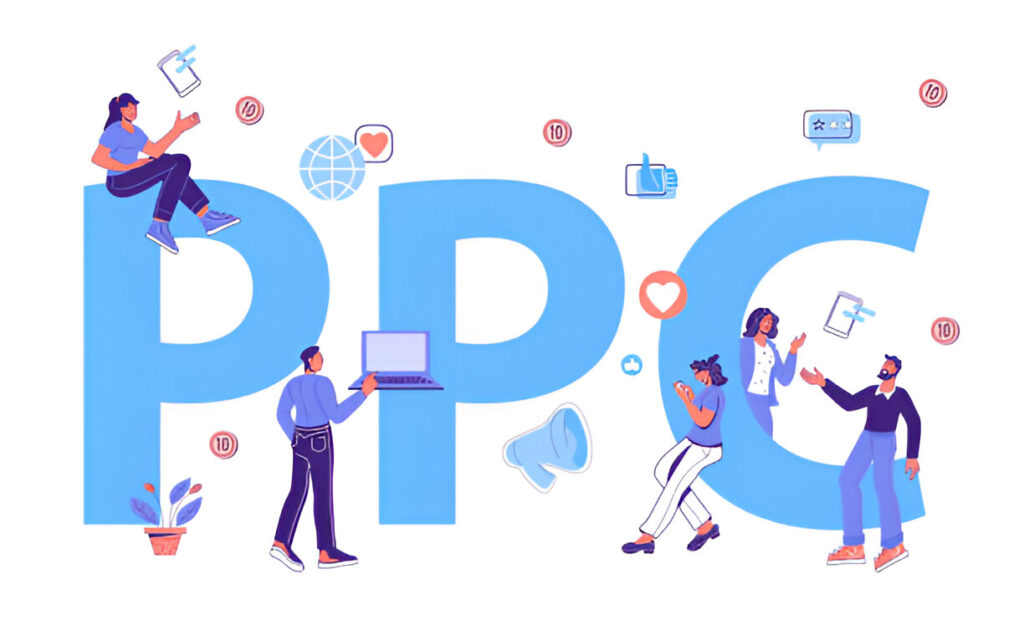Table of Contents
- Understanding PPC
- Choosing the Right Keywords
- Ad Copy Best Practices
- Landing Page Optimization
- Tracking and Analytics
- Budget Management
- Examining Campaign Performance
- Final Thoughts
Understanding PPC
Pay-per-click (PPC) advertising can be an incredibly effective method to drive traffic to your website. Essentially, advertisers bid on keywords, and the winner’s ad is displayed to users searching for those terms. This can result in immediate visibility and traffic, but it requires a strategic approach to be cost-effective and successful. According to the Search Engine Journal, PPC offers immediate results but demands constant attention and fine-tuning. To maximize PPC advertising ROI, it’s crucial to understand the mechanics and implement best practices. PPC can deliver quick results but requires ongoing management to ensure that campaigns remain effective and profitable.
Choosing the Right Keywords
Selecting the correct keywords is critical for a successful PPC campaign. You need terms that potential customers are searching for but that aren’t so competitive that the cost-per-click is unaffordable. Google Keyword Planner aids in identifying optimal keywords for campaigns, aligning them with user intent and business goals, and regularly updating and refining the keyword list to stay relevant.
Ad Copy Best Practices
To get clicks and conversions, ad copy must be written with appealing content. Your ad must be relevant to the keyword, convey a clear message, and include a strong call to action. For further reading, check out this guide on Marketing Land. To find out which version of your ad copy resonates most with your audience, think about doing A/B testing on several iterations. The ad language should also exploit emotional responses and generate a sense of urgency to inspire rapid action. Enhancing engagement and conversion rates can also be achieved by customizing the messaging for particular audience segments.
Landing Page Optimization
After clicking your ad, users should land on a page that is relevant to the ad and optimized for conversions. This means that the landing page should load quickly, be easy to navigate, and contain a clear call to action that encourages the visitor to complete the desired action, whether that’s making a purchase or filling out a form. Ineffective ad spending and high bounce rates might result from a bad landing page experience. Given that mobile devices may account for the majority of traffic, the design ought to be simple, eye-catching, and optimized for mobile. Moreover, a consistent user experience is guaranteed when the landing page content and ad copy are in line.
Tracking and Analytics
Tracking and analyzing your campaign’s performance is crucial for ongoing success. Maintaining success in your campaign requires regular tracking and analysis of its results. Key performance indicators (KPIs) including click-through rate (CTR), conversion rate, and cost per acquisition (CPA) are tracked using tools like Google Analytics. This data will help you make informed decisions about adjustments to optimize your campaigns. Regularly reviewing this data ensures you are not just spending money but seeing results. Additionally, setting up conversion tracking helps you understand which actions drive the most value, allowing you to allocate your budget more effectively. Making data-driven decisions can significantly enhance the efficiency of your PPC campaigns.
Budget Management
Budget management is another critical aspect of PPC advertising. You’ll need to decide how much you’re willing to spend per click and manage your daily and monthly ad budgets. Effective budget management can help you balance reaching a wide audience and maximizing your return on investment (ROI). It’s advisable to allocate your budget based on high-performing keywords and adjust as necessary. Examining your ad spend versus revenue generated will help you identify areas where investment may be increased or reduced. Furthermore, bid adjustment strategies can ensure you maximize your visibility during high-conversion periods without overspending.
Examining Campaign Performance
Regularly reviewing the performance of your PPC campaigns can highlight opportunities for improvement. Look at metrics like the quality score of your ads, which can affect both your cost per click and your ad placement. Improving your quality score can lead to a more efficient and effective campaign overall. Key factors influencing the quality score include ad relevance, expected click-through rate, and landing page experience. By focusing on these areas, you can enhance the effectiveness of your PPC efforts and reduce costs. Conducting regular audits and staying updated with algorithm changes will keep your campaigns competitive and aligned with best practices.
Final Thoughts
Maximizing your PPC campaigns’ effectiveness involves:
- Selecting the right keywords.
- Crafting excellent ad copy.
- Optimizing your landing pages.
- Diligently tracking your results.
With careful planning and continuous optimization, PPC can be a powerful tool for driving targeted traffic and achieving your business goals. PPC campaigns require ongoing monitoring and adjustment to stay competitive and meet evolving consumer behaviors. Implementing strategies and learning can unlock their full potential.



